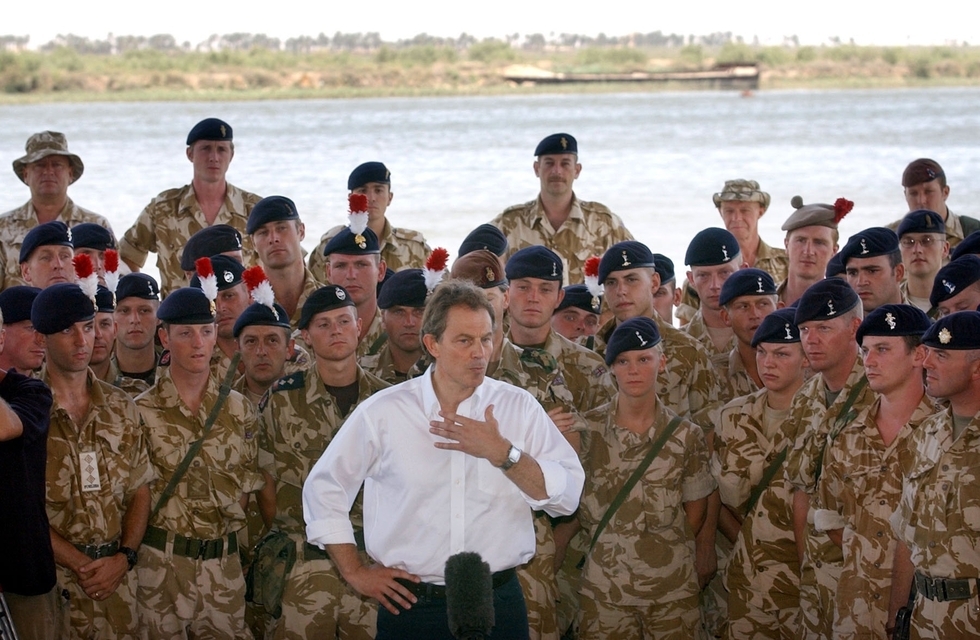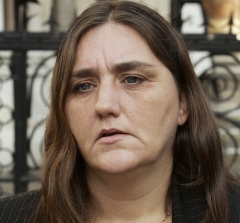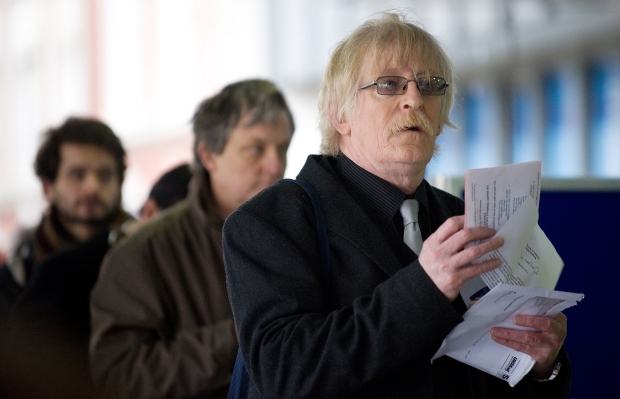Families of British troops killed in Iraq to push for Blair trial

A group of families of British soldiers killed in Iraq are preparing to use the results of the Chilcot inquiry to push for Tony Blair's trial before the International Criminal Court (ICC) in the Hague, Middle East Eye can reveal.
The informal group is set to take legal action after the report is published on 6 July, and is also considering a civil case in UK courts against various British politicians and generals.
The Chilcot Report: Click here for full coverage of the run-up to Wednesday's release on Middle East Eye
Rose Gentle, 52, who lost her son Gordon in Iraq in 2004, said the “one hope” from Chilcot is that “Blair is finally held to account for his lies”.
Gordon Gentle was killed by a roadside bomb in Basra while on patrol with the Royal Highland Fusiliers. He was 19 and had been in Iraq for three weeks.
His mother has campaigned for justice for her son for 12 years, including taking his case to the High Court, and was a founding member of Military Families Against War group.
She blames one man above all others for his death.
“Blair lied and Chilcot needs to hold him to account, but I’m afraid the inquiry has dragged on so long that we might not get all the answers we want,” she told MEE.
The anger that was so visible when Gentle first spoke publicly about her son’s death more than a decade ago is still crystal clear today, days ahead of the publication of the Chilcot report.
“The more I see Blair the angrier I get. He doesn’t show any compassion. I always had wanted to confront him, but I’m not sure I could see him, unless I was sitting opposite him in court. It all boils down to him. He was the prime minister. He called the shots.”
She added: “The next step for us, if Chilcot does bring out the evidence that he lied, is that Blair should face a tribunal in the Hague. We are going to take legal advice.”
Gentle’s emotional intervention came after families who lost soldiers in the conflict said last month they were planning to use the contents of the Chilcot report to sue Blair, former ministers and generals for failing in their public duties to protect British troops.
The informal group of families, which is seeking justice for the 179 servicemen and women killed during Britain’s involvement in the eight-year conflict, will have to overcome numerous legal obstacles which experts say make it impossible for Blair to ever face charges in the Hague.
As a matter of law, experts say Blair can never face war crimes charges at the ICC because it will not formally recognise the “crime of aggression” until at least 2017 and will not consider retrospective cases.
The ICC has already indicated that it will not pursue a case against Blair but will look at the conduct of British military personnel involved in the Iraq war with a view to possible prosecutions.
In a statement to the Telegraph newspaper, it said that the decision to go to war fell outside of the court's jurisdiction.
“We will take note of the Chilcot report when released in the context of its ongoing preliminary examination work concerning Iraq/UK,” the ICC statement said. “A preliminary examination is not an investigation but a process aimed at determining whether reasonable basis exist to open an investigation."
Gentle is certain though, that whatever the legal implications of the day, she and the other families will find the publication of the 2.6 million-word report incredibly emotional.
“I think the day is going to be really hard. There will be tears, but that’s why we have pushed so hard for this inquiry. We didn’t just want all the files from the war to go into storage and sit in a warehouse for decades.”
Blood and treasure: The costs of the Iraq war
Gentle is supported by Reg Keys, whose son was killed in Iraq in 2003 and who stood against Blair in his Sedgefield constituency in the 2005 general election.
She is also supported by Peter Brierley, 65, from Batley, West Yorkshire, whose son, Lance Corporal Shaun Brierley, died during the opening days of the conflict.
He told MEE that he hoped the report would either “bring closure” or allow families to push for Blair to be tried in the Hague.
“We have been waiting for this for so long we’ve started to wonder if a proper report will ever emerge, but our hope is that it will help us get Tony Blair to court.
“If the report clears Blair of lying I will have to accept that, but I believe the evidence will show that it was deliberate and we can launch phase two; getting Blair to be tried in the International Criminal Court.”
Sorry not sorry: Tony Blair in his own words on Iraq
Brierley has previously confronted Blair, accusing him of having blood on his hands from his role in the conflict, which some estimates say killed more than a million people.
In 2009, following a service at St Paul’s Cathedral to mark the end of Britain’s deployment to Iraq, he refused to shake Blair’s hand.
He told Blair: “I don't want to shake your hand. It has blood on it – the blood of my son, the blood of all the other soldiers who died and of the Iraqi people who also died in the war. You took us to war on a lie and you are responsible for all those deaths in Iraq. One day it will come back on you and you'll have to pay for what you did.”
Brierley says the anger he felt hasn’t left him, but that he is now more “controlled”.
“I still say that Blair is a war criminal and should go the Hague. I’m now waiting to see the evidence from Chilcot.”
Brierley’s son died from head injuries suffered when his Land Rover crashed on the main supply road between the Kuwaiti border and Baghdad, and his father says he was one of the British soldiers lost because of a lack of adequate equipment.
However Brierley, who will join other families in London for the unveiling of the report on Wednesday, said he was also speaking out for the Iraqi victims of the conflict.
“I’m doing this because of my son, but we mustn't forget the Iraqis in this. There can never be peace in the world while the questions from Chilcot are unanswered.
“We’ve always concentrated on the 179 British soldiers who died, but we know that you can trace the rise of Islamic State terrorists back to Iraq and the invasion.”
Brierley and other families face major obstacles in pushing for Blair to be tried by the ICC, however.
The former international development secretary Clare Short told Middle East Eye that she had “sympathy” with families who had lost loved ones but that a prosecution “was never going to happen”.
Clare Short: Blair will never be forgiven for Iraq suffering
She said: “I know lots of people would like to see that. I respect and understand that, but the way in which the international criminal court works means that a case will only be examined if a local court won’t address it and there has to be a Security Council resolution. It’s not going to happen. The UK still has a veto."
Brierley and some relatives say the report will not be the end of the process and have expressed concern that the fallout from the Brexit vote and the chaos consuming the Labour Party could distract the media from Chilcot.
“I know Chilcot will dominate the headlines when it’s released, but I don’t want it to fade away the next day, to drop back further in the papers and drop off the news bulletins. It’s too important.”
New MEE newsletter: Jerusalem Dispatch
Sign up to get the latest insights and analysis on Israel-Palestine, alongside Turkey Unpacked and other MEE newsletters
Middle East Eye delivers independent and unrivalled coverage and analysis of the Middle East, North Africa and beyond. To learn more about republishing this content and the associated fees, please fill out this form. More about MEE can be found here.



